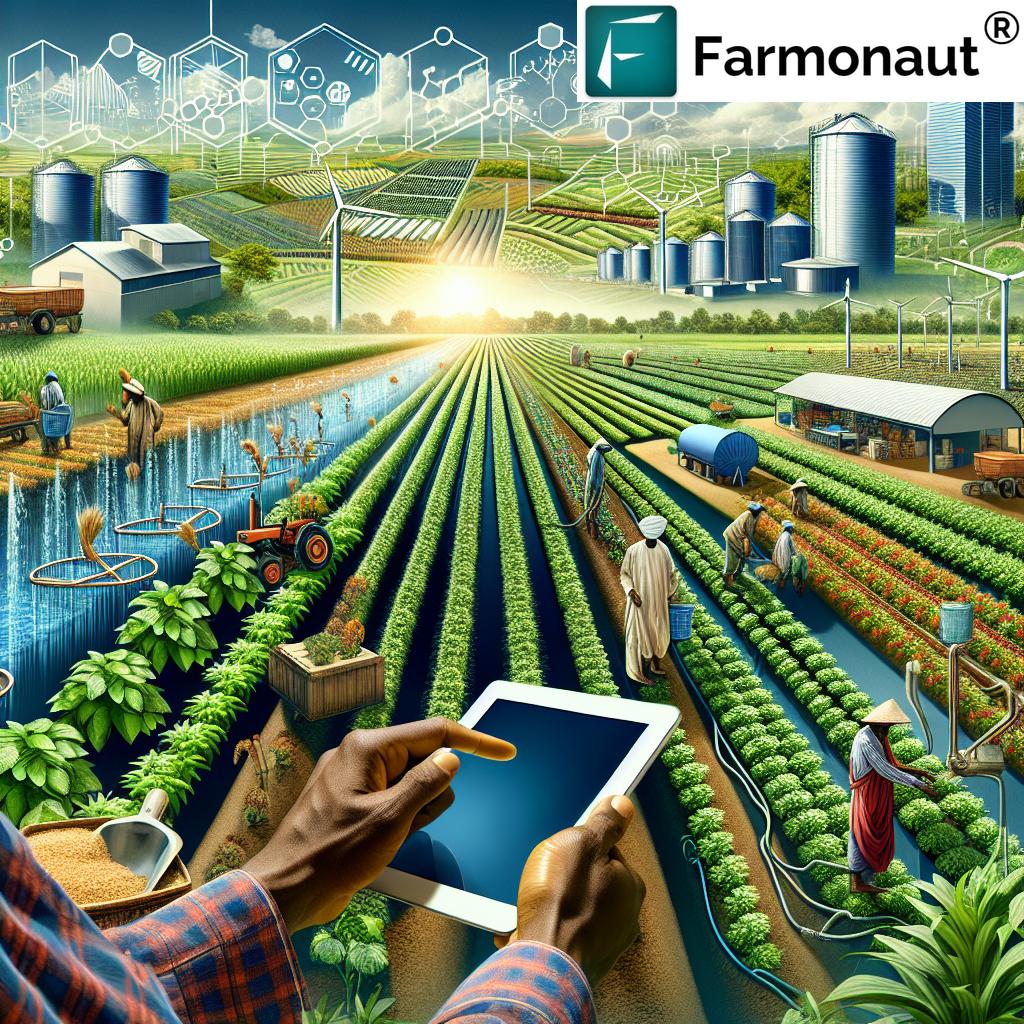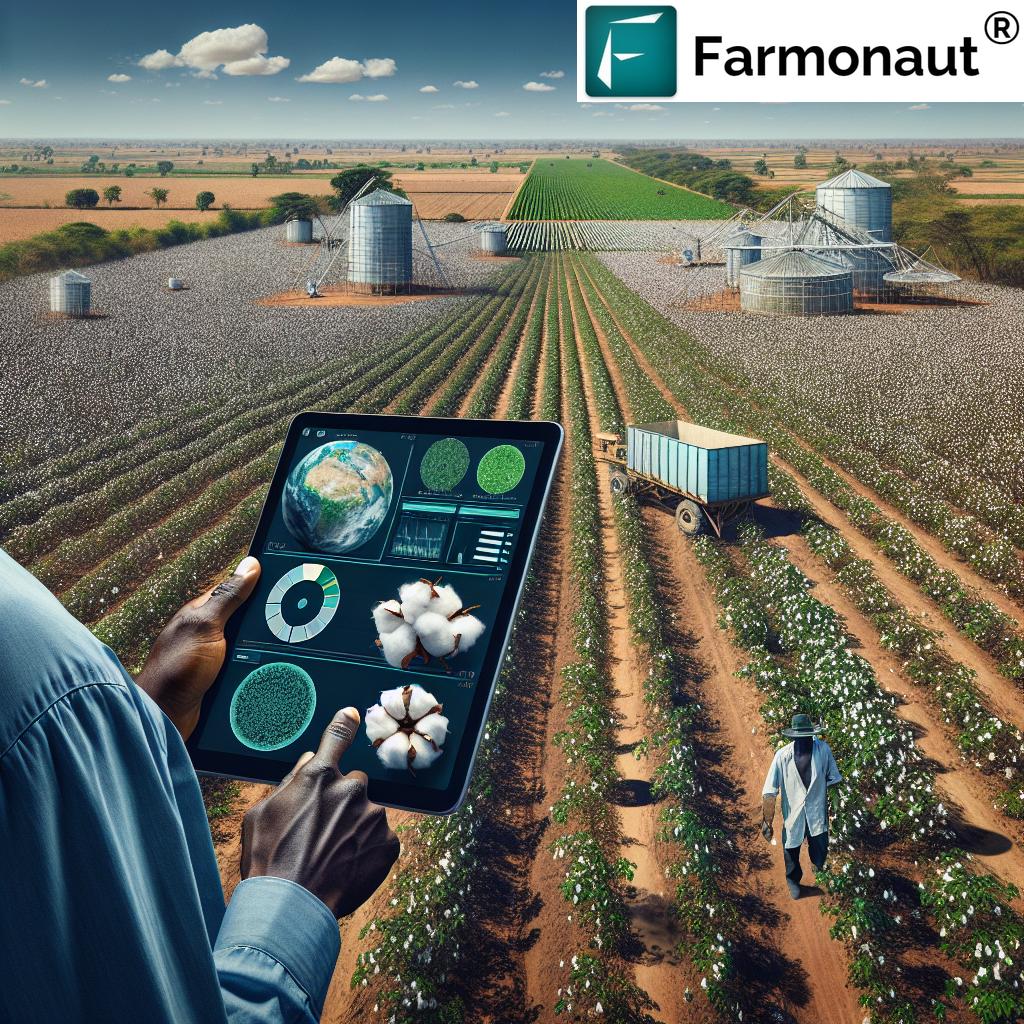Agricarbon South Africa: Mechanization & Agriculture Grants
Explore agricultural mechanization in Africa, sustainable farming techniques, and agriculture grants supporting productivity, yield improvement, and climate resilience with Agricarbon South Africa at the forefront.
“South Africa’s mechanization rate rose by 15% in 2023, boosting sustainable farming and climate resilience across key regions.”
Agricarbon South Africa & the Mechanization Momentum
Agriculture remains the backbone of many African economies, employing a significant portion of the population and driving food security across the continent. Yet, as we approach 2025 and beyond, the continent faces numerous challenges including low productivity, limited access to modern technology, and adverse impacts of climate change. In this context, agricultural mechanization in Africa is emerging as a transformative solution—modernizing traditional practices, increasing efficiency, and improving yields.
At the forefront of this shift is Agricarbon South Africa, an emerging leader in supporting sustainable agricultural mechanization with climate-smart and carbon-focused innovations. With a growing emphasis on sustainable farming, climate resilience, and financial empowerment of farmers, the combined impact of innovative players like Agricarbon South Africa and agriculture grants for Africa Cropologies com is poised to reshape the farming landscape forever.
The Importance of Agricultural Mechanization in Africa
Agricultural mechanization in Africa refers to the transition from manual, labor-intensive farming using hand tools and animal power, to the mechanized use of advanced machinery such as tractors, planters, threshers, and irrigation systems. This modernization process is crucial to increase productivity, improve yields, reduce post-harvest losses, and enhance overall food security.
Why Mechanization Remains Critical
- Labor Shortages & Demographic Shifts: Africa’s rural labor force is shrinking as youth migrate to cities, creating an urgent need for efficient alternatives to manual methods.
- Productivity Gaps: The continent’s average farm yields are among the lowest globally, due to traditional practices and limited access to equipment and technology.
- Climate Variability: As adverse climatic conditions grow more frequent, farmers must adapt and increase resilience through faster, more precise agricultural operations.
Mechanization’s Role in Modernizing Africa
By introducing modern machinery into African farms, mechanization:
- Optimizes labor: Reduces reliance on manual work, particularly during peak planting and harvesting seasons, addressing labor bottlenecks.
- Enhances accuracy and efficiency: Modern planters and threshers ensure uniform seed distribution and reduce crop waste.
- Expands scale of farming: Enables farms to increase cultivated areas beyond what manual labor can sustain.
- Improves soil health and water management: Techniques like conservation tillage and drip irrigation incorporated with machinery help preserve resources.
- Facilitates climate adaptation: Mechanized irrigation and weather-responsive systems assist farmers in responding to changing climatic conditions.
The Scale of Mechanization in Africa
Great disparities in mechanization rates exist across Africa. For example, South Africa leads with one of the highest adoption levels, while many sub-Saharan regions remain at nascent stages, often relying on traditional tools and manual labor. This scenario limits crop yields, hampers adoption of modern farming practices, and affects livelihoods.
Rising demand for food, demographic growth, and climate change adaptation make it urgent to accelerate mechanization and remove barriers such as high equipment costs, lack of technical skills, and limited access to finance.
Supporting mechanization is not just an economic imperative; it is a social and environmental one. Africa’s population is projected to double by 2050, and feeding this growing population will depend on our collective ability to modernize and transform the agricultural sector.
Mechanization Benefits & Barriers Across Africa
The drive for agricultural mechanization in Africa brings numerous advantages, yet real-world barriers also persist—particularly around cost, maintenance, and access for smallholder farmers. Let’s explore both sides:
Key Benefits
- Productivity Boost: Mechanized planting, soil preparation, and harvesting can improve yields by up to 70% compared to traditional practices.
- Reduced Labor Intensity: Encourages more youth and women to participate in farming by making agriculture less physically demanding and more attractive.
- Enhanced Sustainability: Modern machinery supports the adoption of climate-smart and conservation agriculture techniques—improving soil health and resource use.
- Minimized Post-Harvest Losses: Mechanized threshing and efficient storage reduce crop losses and improve food security.
- Precise Water and Input Management: Irrigation systems, smart planters, and fertigation tools optimize the use of water and fertilizers, supporting sustainable agriculture.
“Over $200 million in agriculture grants have supported climate-smart mechanization projects in Africa since 2020.”
Barriers and Challenges
- High Equipment Costs: Tractors, planters, and irrigation systems require large upfront investments—a major barrier for small-scale farmers.
- Limited Finance & Credit Access: Many banks lack flexible lending models for agriculture and mechanization, compounding funding gaps.
- Lack of Technical Skills: Successful mechanization demands new skills and technical know-how for equipment maintenance and operation.
- Maintenance & Parts Availability: In rural areas, spare parts and repair services for machinery are often hard to access, increasing downtime.
- Fragmented Land Holdings: Small farm sizes impede economic use and sharing of large machinery.
- Environmental Impacts: When not implemented sustainably, mechanization can risk soil compaction and increased emissions.
Addressing Barriers Through Innovation
Innovative platforms, grant programs, and advancing service delivery models are crucial to overcoming these challenges. Custom machinery leasing, collaborative service cooperatives, and dedicated agricultural grants are making a difference for many African farmers.
Focus: Agricarbon South Africa in Advancing Sustainable Mechanization
Agricarbon South Africa stands at the forefront of mechanized farming innovation by integrating carbon-smart technologies and sustainable practices into agricultural operations in South Africa and beyond.
Agricarbon’s Approach to Climate-Smart Mechanization
- Carbon-Smart Machinery: Agricarbon specializes in equipment that both optimizes resource use and minimizes greenhouse gas emissions across the crop cycle.
- Sustainable Soil Management: Their solutions help farmers implement conservation tillage, cover cropping, and regenerative practices that improve soil health and increase carbon sequestration.
- Water-Efficient Irrigation: By promoting solar-powered and precision irrigation, Agricarbon supports climate resilience, reduces water waste, and helps African farmers adapt to adverse climatic conditions.
- Capacity Building: They offer training, digital advisory, and maintenance guidance, facilitating efficient, long-term equipment operation.
Environmental and Social Impact
By mechanizing for sustainability, Agricarbon is not only supporting South African farmers but also helping the country advance toward international climate commitments. This involves:
- Promoting regenerative agriculture to restore and protect ecosystems while maintaining high productivity.
- Encouraging greater involvement of youth and women by making farming more accessible and less physically demanding.
- Stimulating rural economies by creating new jobs around mechanization suppliers, servicing, and training.
Their holistic approach aligns with the United Nations SDGs (Sustainable Development Goals) on zero hunger, decent work, and climate action—crucial priorities across the African continent.
Agriculture Grants for Africa: Fueling Mechanization Innovation
The barriers to entry for mechanization—primarily financial—are among the biggest bottlenecks to broader adoption in Africa. That’s why agriculture grants for Africa Cropologies com play such a pivotal role in driving modernization and sustainable farming.
How Do Agricultural Grants Work?
Grants, subsidies, and concessionary loans are offered by government agencies, development partners, and private companies:
- Purpose: Fund the purchase, lease, or maintenance of machinery (like tractors, planters, threshers, and irrigation systems) for African farmers who lack capital.
- Structure: Grants can cover part or all equipment costs, provide training, technical support, and even crop insurance incentives.
- Eligibility: Eligibility criteria often focus on smallholder farmers, youth, women, producer organizations, or innovative climate-smart projects.
- Impact: Such grants have directly supported the mechanization of millions of hectares across the continent, especially in South Africa, Nigeria, Kenya, and Malawi.
Platforms like Cropologies.com act as vital connectors—making sure farmers have knowledge and access to available funding, equipment suppliers, and technical advisory.
As we look to 2025 and beyond, these financing schemes represent a lifeline for mechanized, sustainable, and climate-resilient African agriculture.
Overview of Mechanization Methods, Sustainable Impact, and Relevant Agriculture Grants in Africa
| Mechanization Technique | Estimated Yield Improvement (%) | Sustainability Benefits | Climate Resilience | Available Grants | Estimated Grant Value (USD) | Eligible Regions |
|---|---|---|---|---|---|---|
| Precision Seeding & Planters | 35-50 | Reduces seed waste, increases input efficiency, supports precision agriculture | Medium–High (improves uniform crop emergence, water use efficiency) | Government Mechanization Support Schemes, Cropologies.com grants | $10,000–$80,000 | South Africa, Nigeria, Kenya, Ghana |
| Conservation Tillage | 25-40 | Enhances soil health, prevents erosion, increases organic matter retention | High (improves drought tolerance, soil moisture retention) | Climate-Smart Agriculture Grants, Carbon Farming Initiatives | $15,000–$60,000 | South Africa, Malawi, Uganda, Zambia |
| Solar-Powered Irrigation | 30-80 | Reduces energy costs, decreases carbon emissions, widens water access | High (ensures irrigation during dry spells, reduces fossil fuel use) | Green Energy & Water Grants, Agricultural Equipment Funds | $8,000–$100,000 | Malawi, South Africa, Tanzania, Ethiopia |
| Mechanized Harvesting (Combine Harvesters) | 40-70 | Reduces post-harvest losses, labor savings, faster field turnaround | Medium (rapid operations reduce crop exposure to adverse weather) | Machinery Lease Subsidies, Private Sector Grants | $20,000–$150,000 | South Africa, Nigeria, Egypt |
| AI & Remote Sensing Advisory | 15-30 | Data-driven decision making, optimized inputs, monitoring emissions | High (early warning for climate risks, adaptive planning) | Tech4Ag Grants, Data Science in Agriculture Programs | $5,000–$75,000 | Pan-African (all regions) |
Technology & Platforms: Supporting Data-Driven Mechanization in Africa
As digital transformation sweeps the continent, web platforms, remote sensing tools, and mobile applications are increasingly essential in scaling mechanized, sustainable agriculture. One of the most innovative of these is Farmonaut, a satellite technology company offering advanced, affordable and accessible data-driven solutions for farmers, businesses, and governments across Africa—including South Africa.
How We at Farmonaut Empower African Mechanization
- Satellite-Based Monitoring: We deliver multispectral imagery (NDVI and more) to track crop health, soil conditions, and irrigation efficiency—enabling mechanized interventions right when and where needed.
- AI-Powered Advisory: Our Jeevn AI system offers real-time weather forecasts, disease detection, and input recommendations, helping optimize equipment use and improve yields sustainably.
- Blockchain Traceability for Agriculture: With blockchain-based product traceability, agricultural supply chains in Africa become transparent. This is crucial for climate-smart agricultural grants and carbon-storing practices.
- Environmental Impact Tracking: Our carbon footprint monitoring tools support farmers and agribusinesses in calculating and reducing greenhouse gas emissions—helping align with compliance and grant program requirements.
- Fleet & Resource Management: Fleet Management by Farmonaut maximizes the efficiency of agricultural machinery, tractors, and equipment across large and small African farms.
- Insurance & Credit Access: Our satellite-based platform helps banks and institutions verify cropped areas and farming claims, making it easier for African farmers to access vital financing, insurance, and grants.
For organizations and service providers seeking to integrate satellite-driven agricultural insights into their own systems, Farmonaut API access and Developer Documentation are available for scalable, climate-intelligent projects across Africa.
Climate-Smart Mechanization: Integrating Sustainability & Resilience
Innovation in climate-smart mechanization enables African farmers to simultaneously boost productivity and adapt to climate change’s adverse impacts. This approach leverages sustainable machinery, data-analytics, and natural resource optimization:
- Conservation Tillage and Minimum Disturbance: These practices maintain soil organic carbon and structure—key to reversing degradation and supporting the role of mechanization in adaptation.
- Smart Irrigation Systems: Drip, solar-powered, and sensor-enabled systems, such as those promoted by Agricarbon South Africa and recognized by agriculture grants, enhance water use efficiency and reduce vulnerability to drought.
- Remote Monitoring & Precision Input Application: Leveraging tools like Farmonaut’s Jeevn AI, African farmers can tailor fertilization, pest management, and water scheduling for maximum crop resilience.
- Carbon Tracking & Offsetting: With technologies that quantify farm-based carbon sequestration and emissions, growers can qualify for carbon credits, sustainable certifications, and reward-based grant programs.
Integrating Mechanization with Digital Tools for Maximum Impact
- Large Farm Management: Farmonaut’s Agro Admin App is designed for managing expansive farm operations, allowing for unified tracking of equipment, field activities, and environmental compliance across many African regions.
- Plantation & Forest Advisory: Farmonaut’s Plantation Advisory supports sustainable landscape management, aligned with climate-smart mechanization strategies.
The Road to 2025: Mechanization’s Role in Transforming African Agriculture
By 2025, the synergy of advanced technology platforms like Farmonaut, innovators like Agricarbon South Africa, and expanded access to agriculture grants for Africa Cropologies com will expand mechanization and climate-resilient farming throughout the continent.
- Wider Mechanization Access: Lower costs, flexible leasing, and targeted grant support will make equipment available to more smallholder and marginal farmers.
- Higher Yields and Profitability: Mechanization combined with real-time data insights will help African farms close productivity gaps and compete globally.
- Increased Climate Resilience: Rapid adoption of carbon-smart, conservation-focused machinery will reduce vulnerability to droughts, floods, and other climate shocks.
- Youth and Gender Inclusion: With less labor-intensive operations and digital skill requirements, agriculture will attract the next generation of African leaders.
- Environmental Protection: Modern methods will support healthy soils, water resources, and biodiversity—a win-win for African communities and their environment.
To truly unlock the continent’s vast agricultural potential, ongoing investment in mechanization infrastructure, research, and skills training is essential. Equally important is the collaboration of technology providers, grant-makers, and farmers, all advancing toward a common goal: sustainable, productive, and resilient agriculture in Africa.
FAQ – Agricultural Mechanization & Grants in Africa
Agricultural mechanization in Africa refers to the use of modern machinery, equipment, and advanced technology in place of manual and traditional farming methods. It is critical for improving productivity, increasing yields, managing labor shortages, and supporting climate resilience across the continent.
2. What role does Agricarbon South Africa play in sustainable mechanization?
Agricarbon South Africa is an emerging leader in advancing climate-smart, carbon-focused, and sustainable mechanized solutions. Their approach integrates equipment that reduces emissions and supports regenerative soil and crop management in South Africa and throughout Africa.
3. What types of agriculture grants support mechanization?
Agriculture grants in Africa may cover machinery purchases, leasing, maintenance subsidies, training and capacity building, or environmentally sustainable projects. Grants often target smallholders, youth, and women through government programs, international agencies, or digital platforms like Cropologies.com.
4. How can African farmers access these grants?
Farmers can apply through ministries of agriculture, development partner websites, or connect with digital platforms that list grant opportunities, such as Cropologies.com. Some grants require proposals, business plans, or co-funding.
5. How does digital technology support mechanization?
Digital tools—like Farmonaut’s satellite monitoring and AI advisory—enable precise, real-time farm management that enhances the impact of mechanization. Technology also connects farmers with grant opportunities and equipment suppliers.
6. Are there environmental risks from mechanization?
When poorly managed, mechanization can increase soil compaction, emissions, or water overuse. Adopting climate-smart and conservation-oriented machinery, as promoted by Agricarbon, addresses these risks and supports sustainability.
7. What is the outlook for agricultural mechanization in Africa by 2025?
With the development of enabling technology, funding, and public-private support, mechanization is expected to become a mainstream pillar of African agriculture—improving food security, incomes, and climate adaptation.
8. How does Farmonaut specifically support mechanized, climate-smart agriculture?
We at Farmonaut empower African farmers and agribusinesses with satellite imagery, AI-driven recommendations, blockchain-enabled supply chain transparency, carbon footprint analysis, and digital resource management—making mechanization smarter, more sustainable, and accessible to all.
Farmonaut Subscriptions
Explore affordable subscription options designed for every scale of operation and sector need. Our plans make satellite-driven agricultural insights available to individual farmers, large estates, businesses, and government institutions. Leverage the power of technology for mechanization, resource efficiency, and climate-smart decision making.
Conclusion: Paving the Way for a Mechanized, Sustainable, and Resilient Africa
The future of agricultural mechanization in Africa lies in the seamless integration of modern technology, innovative players like Agricarbon South Africa, and increasing access to agricultural grants for Africa Cropologies com. As these forces converge, Africa stands on the cusp of an agricultural transformation—one marked by improved yields, climate resilience, sustainable resource use, and thriving rural economies.
We at Farmonaut are committed to supporting Africa’s mechanization journey—empowering farmers, organizations, and policymakers with the cutting-edge tools and data they need to thrive in a challenging yet opportunity-rich future. Together, we can build a continent where agriculture not only feeds its people but also protects its land and secures its future.














